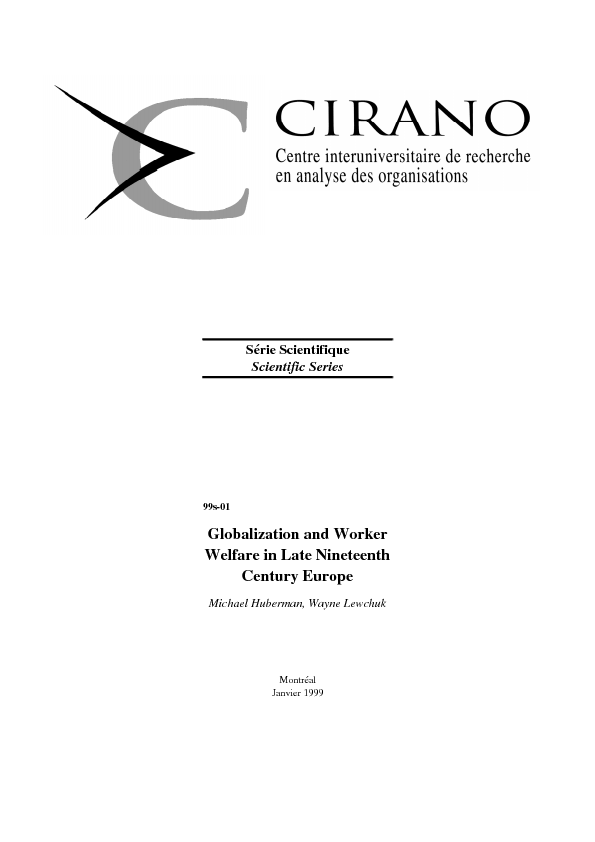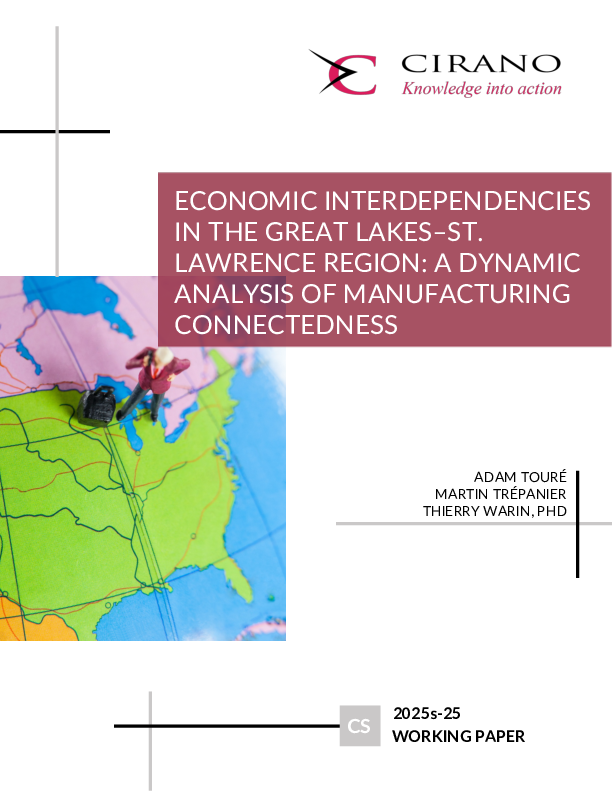Globalization and Worker Welfare in Late Nineteenth Century Europe
This paper asks whether the trend toward convergence in late nineteenth century Europe depends on the welfare measure used. We construct a Worker Development Index (WDI) composed of Williamson's real wage estimates, and new series of work hours and labor market regulations. Compared to GDP/person, the WDI shows a weaker tendency to converge. Across Europe, workers' experiences in the so-called glory days varied. Although increased trade led to higher levels of output, workers' welfare depended to a greater extent on union representation or a strong central authority.
[ - ]




